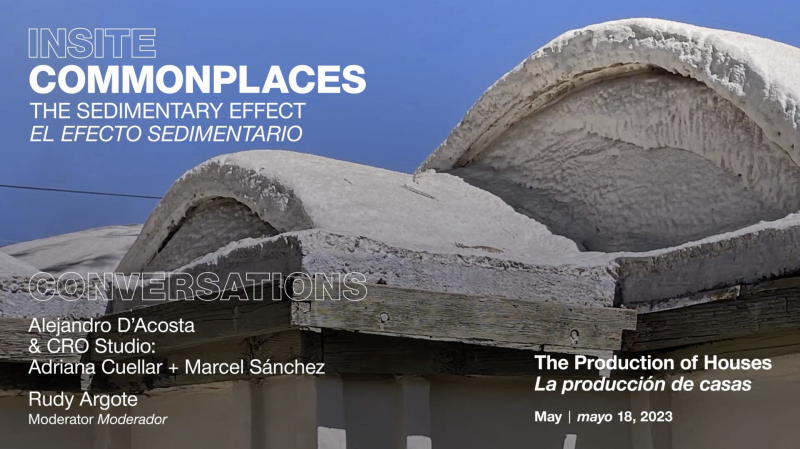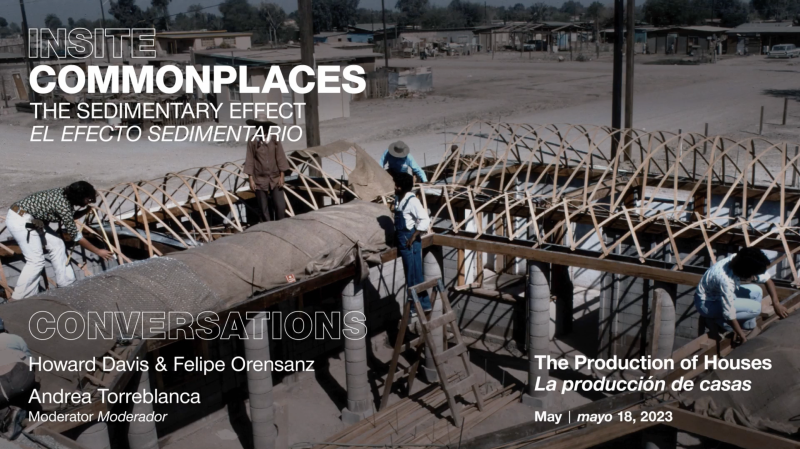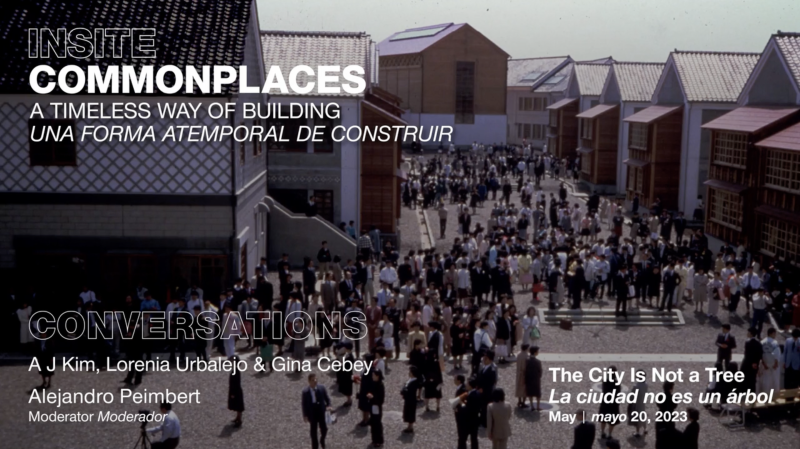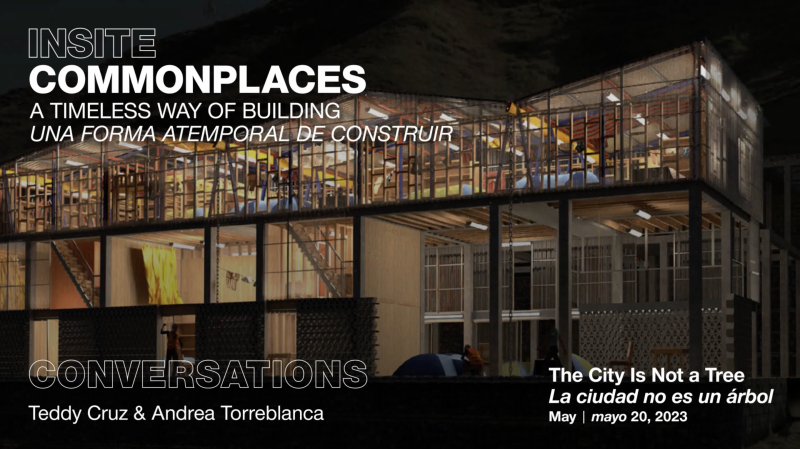On May 18, 19, and 20, 2023, INSITE invited a group of architects, urbanists, and theorists to Mexicali, Mexico, to engage in conversations about vernacular architecture, social housing, the philosophy behind patterns and places, and the political dynamics of public life. The conversations took place in the only place in Mexico built and designed by Vienna-born architect Christopher Alexander: The Mexicali Experimental Project, now known as El Sitio. The Conversations took place in a temporary commissioned pavilion from local architecture firms Veintedoce and Localista. The event was developed in collaboration with seven faculties of the UABC, including the involvement of students in architecture, art, design, translation, and health. In addition to participating in the Conversations, the group spent three days exploring the city's history and current challenges related to housing, immigration, and the environment through curated visits designed by UABC's Faculty of Architecture Director Alejandro Peimbert and architect Carolina Díaz.
Participants
Rudy Argote, Gina Cebey, CRO Studio: Adriana Cuellar and Marcel Sánchez, Teddy Cruz, Alejandro D'Acosta, Howard Davis, A J Kim, Michael Mehaffy, Felipe Orensanz, Alejandro Peimbert, Andrea Torreblanca, and Lorenia Urbalejo.




